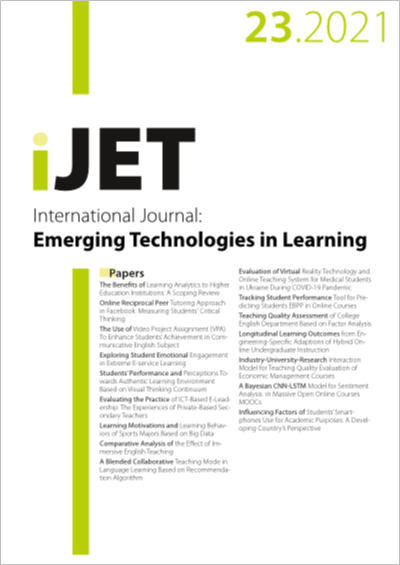Influence of Students’ Entrepreneurial Psychological Capital on Entrepreneurial Exploratory Learning under the Background of Extended Reality (XR)
DOI:
https://doi.org/10.3991/ijet.v17i01.28537Keywords:
extended reality (XR), students’ entrepreneurial psychological capital, entrepreneurial exploratory learningAbstract
Students can carry out exploratory learning of entrepreneurial knowledge by reducing costs and improving efficiency. At the same time, this technology can bring new immersive experience to students and provide them with the opportunity to become the designer and creator of entrepreneurial knowledge. Based on the theory of emotion and social cognition, this study puts forward the research model of students' entrepreneurial psychological capital on entrepreneurial exploratory learning. XR technology also tests whether students' entrepreneurial psychological capital plays an intermediary role in promoting entrepreneurial exploratory learning. The results show that Cronbach α The coefficient is 0.844, the kmo value is 0.787, and the significance is 0.000, indicating that the designed questionnaire has good reliability and validity. XR technology plays a complete intermediary role in the positive promotion of students' entrepreneurial psychological capital society to students' entrepreneurial exploratory learning. This study is of great significance for understanding the important value of XR technology in exploratory learning, enriching the application research of psychological capital in the field of entrepreneurship, and innovating the teaching mode of students' Entrepreneurship Education from the perspective of psychological capital.
Downloads
Published
How to Cite
Issue
Section
License
Copyright (c) 2021 Zhe Liu

This work is licensed under a Creative Commons Attribution 4.0 International License.



